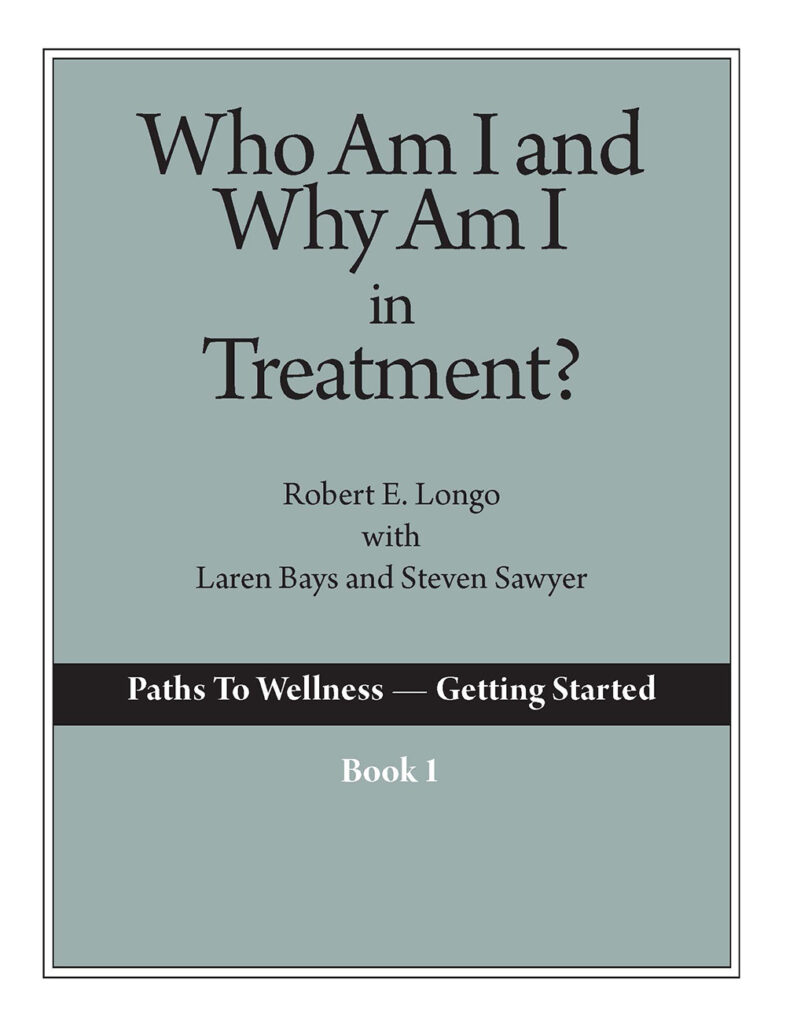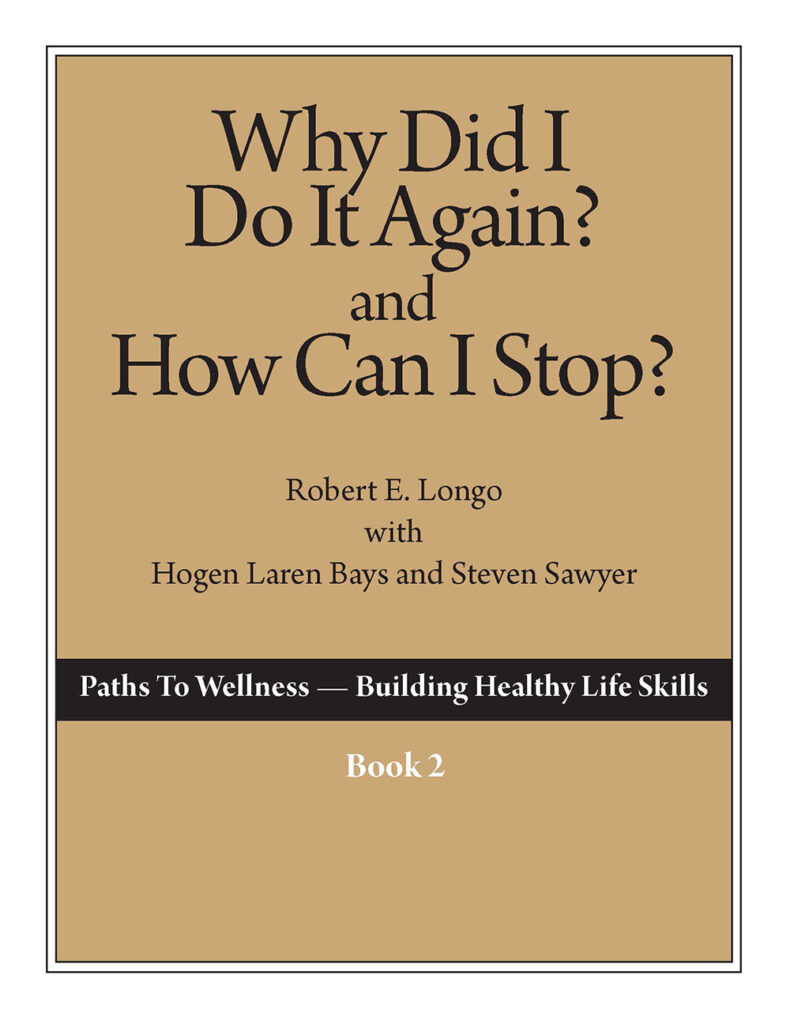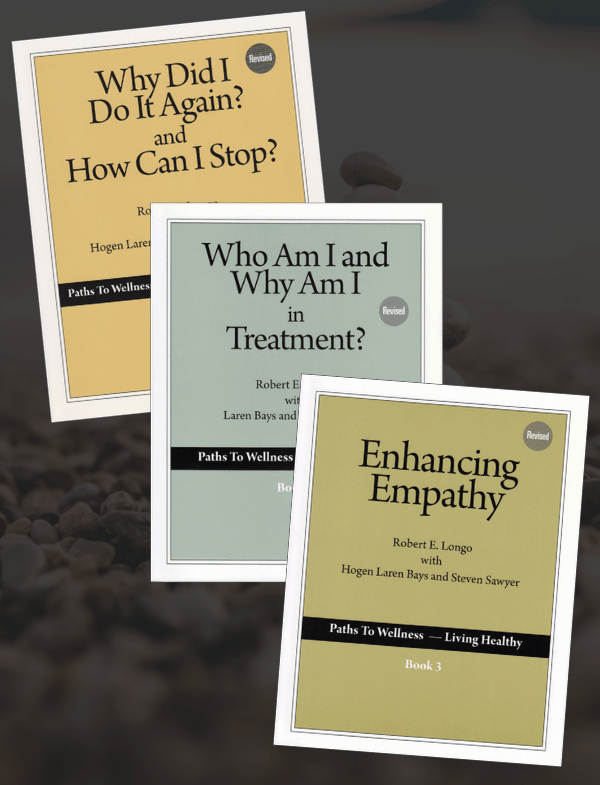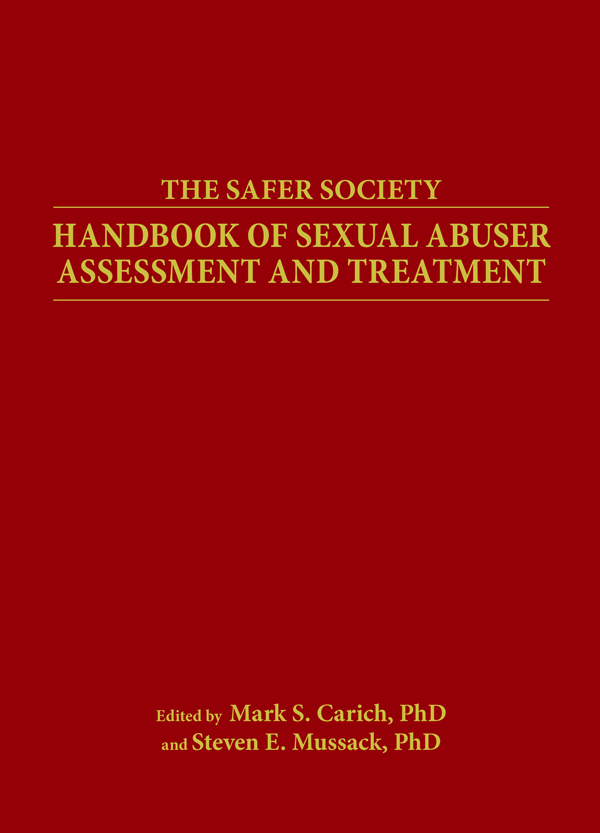Home / Shop / For Adult Clients / Workbooks for Adult Clients
Enhancing Empathy
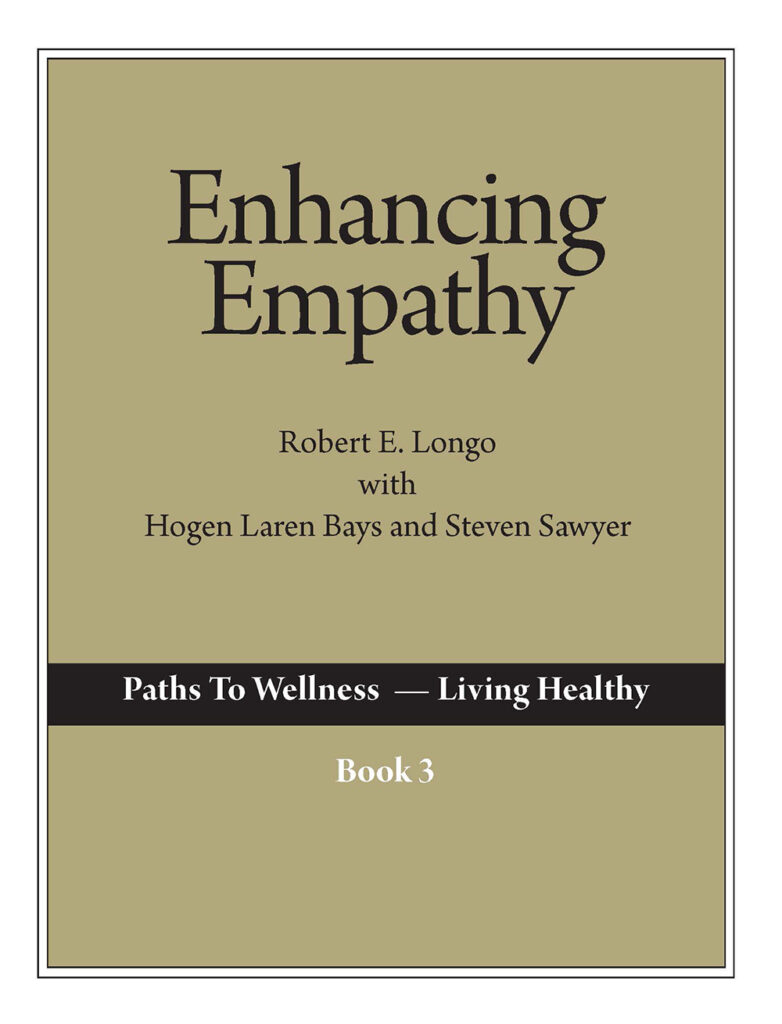
- Description
- Specifications
Enhancing Empathy
by Robert E. Longo with Laren Bays & Steven Sawyer
This is the last workbook in the Paths to Wellness series. Enhancing Empathy offers a thorough and insightful approach to helping those who have sexually abused others reach a deeper understanding of themselves and develop the key trait of empathy. The workbook begins with a fundamental question—"What is empathy?"—setting the stage for a deep exploration of this crucial emotional skill.
While many of the exercises are designed to help clients better understand the roots of their feelings, thoughts, and behaviors, the workbook consistently emphasizes personal responsibility and accountability for one’s actions. The goal is to promote self-awareness while simultaneously reinforcing the importance of taking ownership of one’s choices and consequences.
Clients gain a broad understanding of what it means to feel empathy for others, including:
- Understanding the cycle of abuse
- Recognizing risk factors for harmful behavior
- Learning interventions to stop abusive actions
Building Empathy by Understanding the Impact of Abuse
Empathy can be built by helping clients better understand the long-term impacts of abuse on victims' lives.
This workbook emphasizes that the consequences of sexual abuse are often profound and enduring, touching various aspects of the victim’s life:
- Mental Health: Including depression, anxiety, and PTSD
- Relationships: Difficulties forming trusting relationships
- Self-esteem: Negative impacts on self-worth and self-image
- Overall quality of life: Affecting personal, professional, and social spheres
The workbook also incorporates victim impact statements and case studies to illustrate these effects more vividly.
Building Empathy by Challenging Common Cognitive Distortions
Many of the common cognitive distortions people who commit sexual offenses use to avoid taking responsibility for their actions are addressed in this workbook., These include denial, minimization, blaming the victim, and justification of actions. Clients are encouraged to look within and recall times when they may have used these thinking errors, as they are important barriers to the development of empathy.
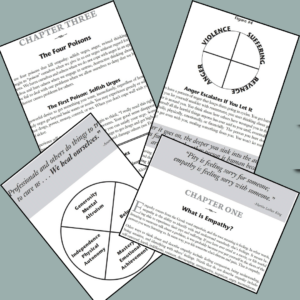 The workbook provides specific examples of each type of distortion, such as denying that abuse occurred, minimizing the harm that they caused, shifting blame to the victim or external circumstances, or rationalizing abusive behavior as acceptable. Exercises are included that prompt clients to identify and challenge these distortions in their own thinking so that barriers to the development of empathy can be lessened.
The workbook provides specific examples of each type of distortion, such as denying that abuse occurred, minimizing the harm that they caused, shifting blame to the victim or external circumstances, or rationalizing abusive behavior as acceptable. Exercises are included that prompt clients to identify and challenge these distortions in their own thinking so that barriers to the development of empathy can be lessened.
Building Empathy Through Compassionate Action
“Empathy is feeling for other people. But it is possible to feel for others and then dismiss them. The step beyond empathy is compassionate action, taking action to help reduce others’ suffering."
In this unique workbook on empathy-building, clients are encouraged to truly listen to those who want to share, give up their time, and assist those who need help. Feelings of empathy unfold in situations like these, and myths about how feelings are a sign of weakness fade away.
A Workbook You and Your Clients Will Value
This workbook, like the others in this series, is written in a simple, direct way that speaks directly to the reader. It includes real-life scenarios, case studies, reflection exercises, and questions that you may wish to explore with your client.
ISBN: 978-1-929657-04-9
77 pages | Paperback
$18.00
Order#: WP181

